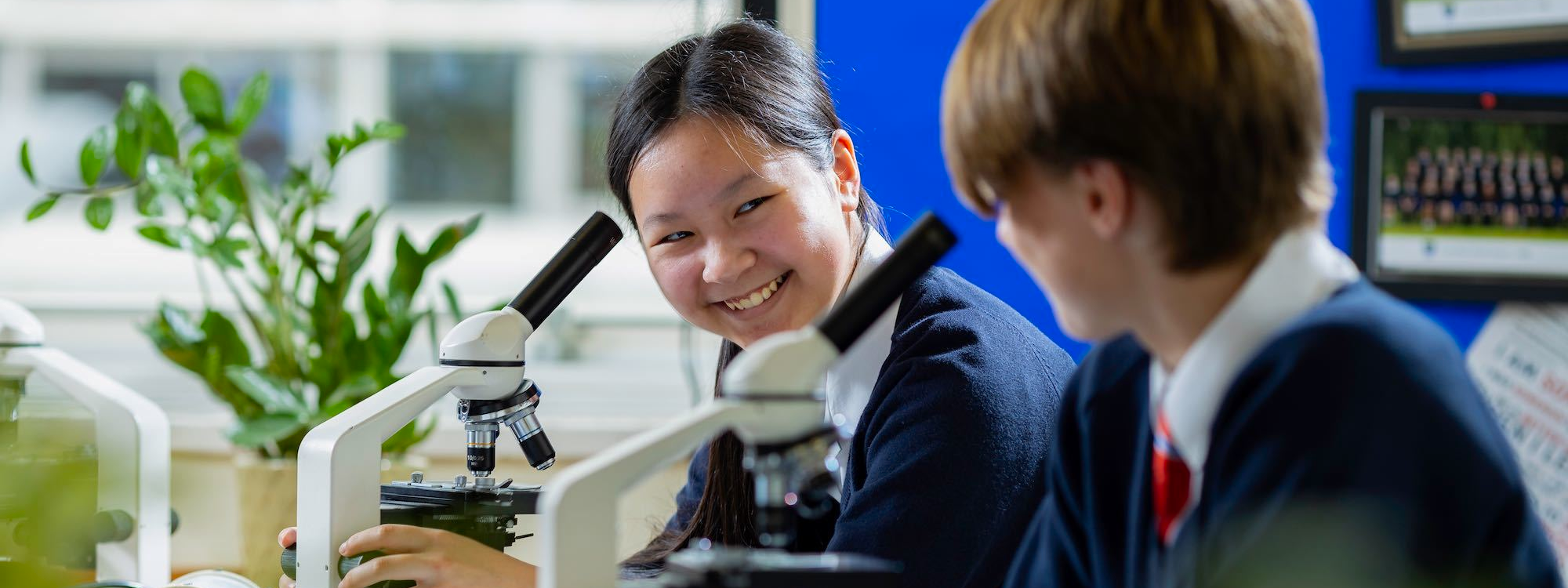Science
‘Science is a way of thinking much more than it is a body of knowledge’ (Carl Sagan)
A basic human motivator is to try to understand WHAT, WHY and HOW.
-
What happened?
-
Why did something happen?
-
How does something work?
Curiosity about the world around us is at the foundation of invention and creativity. Science at Court Moor nurtures that curiosity, satisfying some of that yearning to understand WHAT, WHY and HOW.
- WHAT actions we can take to reduce the impact of climate change?
- WHY is a year what it is on Earth?
- HOW are all organisms connected by the long thin thread of evolutionary change?
In Science lessons we teach our students that using critical thinking and evidence to create solutions might be the key in helping to solve some of the world problems.
There is also a very real effect on the brain and mind that comes from studying Science. Developing a scientific approach to questioning and determining answers is an important skill for life in general, and Science can dramatically increase an individual’s capacity for reasoning and logical thought.
‘Equipped with our senses, humans explore the universe around us and call this adventure Science’ (adapted from a quote by Edward P Hubble)
To contact curriculum leader for science email: science@courtmoorschool.net
Science Key Stage 3
Students follow curriculum strands in Biology, Chemistry and Physics. We teach the big ideas of Science in Year 7; energy, waves, forces, atoms, cells and organ systems.
We expand on these ideas in Year 8 to include plants, reproduction, chemical reactions, electricity and motion.
The methodology of carrying out scientific investigations is taught throughout the curriculum.
Science Key Stage 4
All Students complete GCSEs in science and will cover the following broad topics:
Biology - Cells and organisation. Disease and bioenergetics. Biological responses. Genetics and reproduction. Ecology.
Chemistry - Atoms, bonding and moles. Chemical reactions and energy changes. Rates, equilibrium and organic chemistry. Analysis and the Earth’s resources.
Physics - Energy and energy resources. Particles and work. Forces in action. Waves, electromagnetism and space.
Some students will be selected to follow the Separate Sciences curriculum as they move into Year 11, gaining 3 GCSE grades. For other students, the Combined Science GCSE provides the best opportunities for progress, achieving 2 GCSE grades at end of their GCSE studies.
Astronomy Key Stage 4
(Only available for academic year 2024/25)
Astronomy is a course students can select as part of the Court Moor selection of subjects, as an additional GCSE after school.
This course builds on the basic understanding of Astronomy students learn in year 7 and expands on it. They will learn how to identify constellations in the night sky and use Planispheres to predict the best time for observations
They will also learn about the evolution of our solar system, our sun and even our galaxy. Where (we think) it all started and how it will all end.
As part of the course students will need to complete several observations of the night sky, both aided with telescopes and or cameras and with the naked eye. These observations start in the late autumn term, at school, where students will be trained on the best practice for observing stars, the moon and meteor showers.
At the end of year 11 students will sit two non-tiered exams.
- Naked-eye Astronomy
- Telescopic Astrnomy

